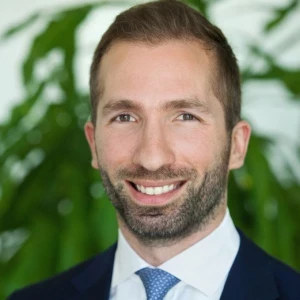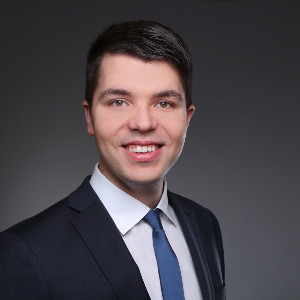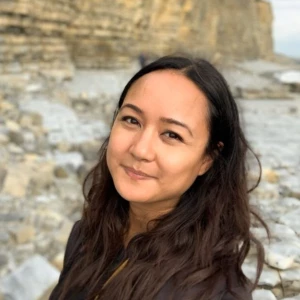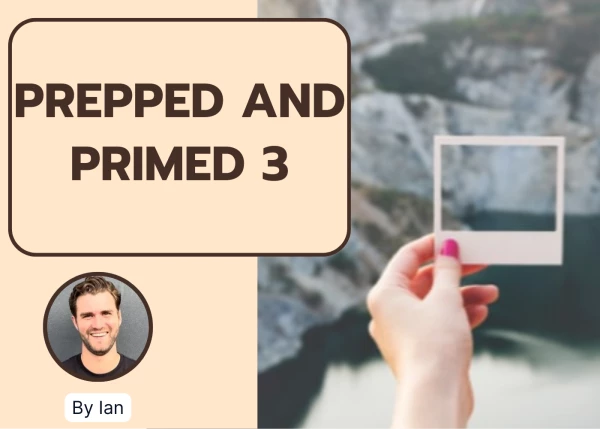How would you answer this question in your Personal Fit interview? Receive feedback on your answer and browse through the Q&As to review the approaches of other applicants and experts.

Tell me about a difficult situation you had to face and how you managed to overcome it!


This is one of the most classic questions: Make sure you have this answer prepared!
During your answer make sure you:
1) Start with a quick summary of the context/challenge and what ended up happening
2) Highlight not just the challenge, but what the anticipacted consequence would have been
3) Make sure you took action AND articulate why you did it (i.e. the logic)
4) Finish with a positive end, with tangible results (i.e. we delivered on-time and with glowing reviews)

Hi A,
this is one of the uncommon question which you might face at the 2nd or final round of your interview. I would strongly recommend you to use a common approach that consists of 5 parts:
1. Situation
2. Problem
3. Solution
4. Results
5. Your learnings.
Using this universal approach/ framework will help you to structure every uncommon, even somtimes difficult questions in a very good manner
be authentic and good luck,
André

Working as an petroleum geoscientist definitely holds its fair amount of pain points. Calls early in the morning concerning rock samples being prepared wrong, difficulties working through complicated geophysical data or quality controling the work of others, there are many difficult situations that present themselves. Receiving a 3 AM call on a Sunday with news that a whole suite of samples had been prepared incorrectly was the worst situation by far. I had to drive almost 150 miles to the client site, recover what data we could from the faulty samples and present those in our daily report. Despite being a taxing and anxiety inducing moment, all of our data were well within the acceptable standard error

As an ex-consultant and now a consulting coach, I understand the importance of effectively articulating your ability to handle challenging situations during personal fit interviews. This particular question provides an excellent opportunity to showcase your problem-solving skills, resilience, and growth mindset – all crucial attributes for success in the consulting profession.
Before sharing a potential answer, let me commend you for recognizing the significance of preparation. Many candidates underestimate the personal fit component, focusing solely on case interviews. However, top consulting firms place equal emphasis on assessing your interpersonal skills, leadership potential, and cultural fit alongside your problem-solving abilities.
Now, let's discuss how you could approach this question effectively:
Choose a relevant and impactful example: Select a situation where you faced a significant challenge or obstacle, whether in a professional, academic, or extracurricular setting. The more substantial the challenge and the greater the implications, the more compelling your story will be.
Set the context: Briefly describe the scenario, the specific challenge you faced, and the potential consequences of not overcoming it. This context will help the interviewer understand the stakes involved and the difficulty of the situation.
Outline your thought process and actions: Clearly articulate the steps you took to analyze the situation, identify potential solutions, and ultimately address the challenge. Highlight the critical thinking, problem-solving, and decision-making skills you employed throughout the process.
Emphasize your adaptability and growth: Share any lessons or insights you gained from this experience, and how it contributed to your personal and professional growth. Consulting firms highly value individuals who are adaptable, resilient, and committed to continuous learning.
Quantify the impact (if applicable): If possible, provide specific metrics or tangible outcomes that demonstrate the positive impact of your actions in overcoming the challenge.
Here's an example answer to illustrate this approach:
"During my final year of university, I was leading a team of students in organizing a large-scale charity event. Two weeks before the event, our primary venue unexpectedly canceled on us due to a scheduling conflict, leaving us without a suitable location to host over 500 attendees.
The initial setback was disheartening, but I quickly recognized the urgency of the situation and the potential consequences of canceling or postponing the event, which would have jeopardized months of hard work and significant fundraising efforts.
I rallied my team and facilitated a brainstorming session to explore alternative venue options. We prioritized locations based on capacity, accessibility, and cost, and I personally reached out to numerous contacts across the university and local community to identify potential solutions.
After several unsuccessful attempts, we secured a larger-than-needed venue at a discounted rate, thanks to my persistent negotiations and leveraging of personal connections. However, this presented a new challenge – ensuring we could effectively utilize the space and create an engaging atmosphere for attendees.
I led a collaborative effort to redesign the event layout, incorporating interactive elements and adjusting logistics to optimize the new venue. Additionally, I worked closely with our marketing team to proactively communicate the venue change and generate excitement around the revised event experience.
Despite the initial setback, our event was a resounding success, attracting over 600 attendees and raising 25% more funds than our original goal. This experience taught me the importance of staying composed under pressure, thinking critically to develop creative solutions, and leveraging the diverse strengths of my team to overcome obstacles.
More importantly, it reinforced the value of adaptability, resilience, and a growth mindset – qualities that have been invaluable in my professional journey and that I continue to cultivate as I pursue a career in consulting."
Notice how this answer provides a specific example, outlines the thought process and actions taken, highlights relevant skills (problem-solving, adaptability, teamwork), and quantifies the positive impact achieved. It also demonstrates self-awareness and a commitment to continuous learning.
As you prepare your own answer, feel free to browse through the Q&A examples provided by other applicants and experts. Tailor your response to showcase your authentic experiences and growth moments, and practice delivering it with confidence and clarity.
Remember, the personal fit interview is your opportunity to let your unique personality and potential shine through. With thoughtful preparation and a well-crafted narrative, you can make a lasting impression on the interviewer and position yourself as a strong candidate for the role.

in my last consulting project, i was on a team of 4. three of us were very much self-directed and self-starters that took initiative to break down, assign, and complete tasks required for the project. one team member, however, was admitedly in need of constant direction. when our team broke down into partners, i was paired with the non-self-starter. i took this opportunity to be candid and open with him about what he needed from me to be successful, and worked with him to break down tasks, which i then assigned a portion of to him. while it felt a little strange stepping into the "boss" role with a peer of equal footing, we both realized that this is what he needed, and what the team needed, to be successful. In the end, our portion of the project was extremely well-received by the client, and my partner and i's (and entire team's) relationship remained positive throughout and after the project.

I was a graduate student and lab manager at the beginning of the pandemic and I had to figure out how to get our lab up and running while conforming to a bunch of new COVID-related sanctions. To do this, I focused on what we could afford and how we could meet the requirements. It took a few months of design and build, as well as a couple policy changes to get us moving again but we were able to start much sooner than we would without the changes I made.

In meiner bisherigen Position wurde ich besonders durch häufige Teammitgliederwechsel herausgefordert, was die Koordination des Projekts erschwerte.
Um dieses Problem anzugehen, führte ich regelmäßige Teammeetings ein, um eine effektive Kommunikation sicherzustellen und alle Teammitglieder auf dem gleichen Stand zu bringen bzw. abzuholen.
Zusätzlich implementierte ich einen Sharepoint, auf dem wichtige Informationen zum Projektverlauf für alle zugänglich waren

Hello!
This is another way to ask for personal impact or leadership.
In most cases, you can leverage the stories you had for those other two "values" for this prompt.
Hints to identify those: cases involving supply chain and logistics, cases with operational bottlenecks, etc.
For those, totally agree with you that it´s key to identfy and even draw in a piece of people asap in the case the whole value chain, not only including product flow but also influencing agents (e.g., for the go-to-market of an specific drug, don´t only include the flow factory > distributors > pharmacy > patients but also dotted lines with insurance companies and doctors.
For this, make questions such as "do you have information about the different agents in the value chain?", etc.
Hope it helps!
Cheers,
Clara

Give a quick, 60-90 second summary, covering
- The situation
- The complication including what could have happened, if
- Your approach how to solve it
- The outcome of your actions
Then be prepared to answer detailed questions on the story, including things like
- How did person A react? Why do you think that is?
- Why did you do this and what were you thinking in the moment
- How did you come to that conclusion? Did you get coaching, did you develop the plan yourself?
- etc.

As an analyst, one of my first jobs was to port a bespoke software to the mobile and tablet platforms, enabling the app to be lighter, faster and easy to use. The product was based on a software used by a Drilling company and my client spoke very accentuated and very limited english. We were expected to get the project onboard in a very short timespan and didnt really have the luxury of time to understand the domain in-depth. I went about approaching a third party expert to better understand the product and data at hand and to priorotize information that was crucial for reports and the information that could be done-away with. My solution met the customer expectations for the product and was a huge success

In the framework of one of the startups I have developed with a colleague of mine, we faced big hurdles in field-testing the technology in developing countries. Due to inability of either of us to travel and work on-site, we contacted local non-profits and other international organizations to find a third party that we could train to work in the target country instead of us.

This was at the begining of my studies, I was at a startup lab, incubating my startup idea and had to pitch it infront of an investor. The investor got extremely mad with my idea because he believed that even though he liked the idea, the industry would never engage for such a service nor rely on a startup. This is why I had to calmly deal with him, stay professional and tell him that I will have a deeper look into his arguments. The next day I was already in a meeting with my IT teacher to ask him if my idea (software) would make sense. One week later I had pivoted to another industry and was offering a whole new startup that ended up winning the third out of over fourty projects while attracting business angels.

Having to prepare a lesson within 30 mins. -> Skimming the solutions and calling a colleague who already gave the lesson
I remember when I was the Vice President of E-Cell in my 2nd year of graduation, we were hosting and E-Summit and we did not have enough innovative events that could impress the audience and motivate them to take the event more seriously.
I had just come from a startup conclave where we had a Lean Startup Workshop and also attended a mentorship session there itself. Taking inspiration from those two events, I developed two events, Pivot and Sell your Product and those two events had the greatest interaction and were talk of the summit. People got to learn a lot from those events and could showcase a lot of their skills.
So using my past experiences, I tweaked a few processes and increased the zeal of innovation among the students.
As a leader of the special events at a college festival, I had to decide the best activities that would best represent the university and also be prudent. I had to let go of a lot of good ideas which were not backed by a detailed execution plan or not enough student showing interest to participate in them

I was a part of a project which got stuck in middle on strategy development because of the lack of a potential solution for the next step. We were brainstorming with the internal team and external consultants but were unable to remove this roadblock. Later, I realized that we need to think with a fresh perspective as we all thinking the conventional way the industry thinks. Later this brainstorming led to finding a solution and thereby successful completion of the project
Took on PM role as a parachuter on extremely short notice for a two week analysis on a client site for 6 countries. It was Friday noon, materials were not ready, the client was deeply annoyed, the team remote, no handover, and workshops had been scheduled to start on Monday after.
I called the client sponsor, arranged a number of high prio calls with him on Friday afternoon and extended those into the weekened to prepare jointly with him the Monday start. In between I called the team togther, had each give me a very short 3min summary on tasks, issues, risks, support needs, pulled them together and had them start running properly.
In the end I lot two weekends and we had to pull a few all nighters but we managed to deliver the analysis and even set up a new best-practice in terms of output quality at the end of the two weeks. Still, a parachute I am not eager to repeat.
degradierung durch alteingesessenen kollegen, dem sein titel sehr wichtig ist. statt ihn anzugreifen und vor allen anderen bloß zu stellen, habe ich ein persönliches meeting eingestellt und dort in ruhe mit ihm besprochen, was ich nicht gut fand.

Here's a general structure I recommend usually following especially when addressing challenging issues and trying to highlight leadership:
1. Anchor the Context
Briefly set the stage: Where were you, who was involved, and what was the overall objective? This frames the story so the interviewer knows why it mattered.
2. Build Alignment
Explain how you created unity or a shared vision among team members. Did you define clear roles, or set up communication channels?
3. Confront Challenges
Detail the major roadblocks you faced, how they arose, and why they threatened success. Focus on what made the goal “difficult” to achieve.
4. Drive Solutions
Describe the steps you took—decisions, negotiations, or creative pivots—that overcame these challenges. Show how you led under pressure.
5. Evaluate Outcomes
Wrap up with tangible results or lessons learned. Did you meet or exceed targets? If possible, quantify the success. Also, reflect on any personal insights.
By following these five steps, you ensure a concise, compelling narrative that highlights your ability to inspire and mobilize others.
Sample Answer
Anchor the Context:
“In my previous role at a tech company, our department was struggling with outdated customer relationship management (CRM) tools. Leadership asked me to spearhead a six-member cross-functional team to implement a new CRM platform in just eight weeks—half the usual timeline.”
Build Alignment:
“I kicked off by organizing a ‘vision workshop’ where I laid out our end goal: a unified system that could cut data-entry work by 40% and unify three regional offices under one platform. This workshop helped clarify individual roles—developers, data analysts, and trainers—so everyone understood how their tasks fed into the overarching objective.”
Confront Challenges:
“Early on, two critical hurdles emerged: first, conflicting data structures across the three regions, and second, skepticism from senior sales reps who were wary of adopting a brand-new system so quickly. Without fixing these issues, we risked missing the deadline or delivering a system people refused to use.”
Drive Solutions:
“To tackle the data challenge, I set up a rapid ‘data harmonization’ sprint, bringing in a senior IT specialist for expert insights. Meanwhile, I organized weekly feedback loops with key sales leads. I made a point of demonstrating real-time improvements—like simplified data-entry forms—to show them the benefits immediately. By keeping communication transparent, I quelled pushback and fostered buy-in from even the most reluctant team members.”
Evaluate Outcomes:
“We went live with the new CRM one day ahead of schedule, and within a month, data-entry time had dropped by 45%—exceeding our initial target. More importantly, user adoption rates skyrocketed to 90% in the first quarter, proving the system was both intuitive and valuable. The project taught me that pinpointing the right allies early on and demonstrating quick wins can rapidly shift team and stakeholder mindsets, even under intense pressure.”
Why This Stands Out
1. You Clearly Led: The story emphasizes decisions you made and actions you took.
2. You Faced Real Challenges: You addressed opposition and complex technical hurdles.
3. You Showed Concrete Impact: Percentages and timeline details give credibility and underscore success.
4. You Reflected on Your Approach: Closing with a lesson ties the story back to what you learned as a leader.
Using this structure keeps your story structured yet personal, allowing you to differentiate yourself in the interview by highlighting both how you lead and why your leadership style works.


One difficulty I had to overcome was working in a intercultural and interdisciplinary team, where team members would frequently have disputes or different points of view.
We overcame these issues by assigning every group member to his or her favoured working task and by doing weekly presentations within our group to discuss the current status quo of each task.
Moreover, I took the role of a group leader mediating between the group members and breaking down working tasks for my fellow team members.
Having a difficult client. I had to approach the situation with humility and try understand the route case for thier resistance
In a prior project, we discovered we made a from our methods, doing our implementation. Thus, we had to reprioritise our priorities, fixed the problem from the methods, and iterately ran the project to fix the problem
I took on a new role which came with very demanding targets and discovered that half of my team were not up to the task. I had to replace them within 6 months and was able to still achieve the set targets

In sales, there are times when our numbers are behind target. In one such situation, one of our biggest clients also sarted to pull back spend due to their own business problems. Not able to influence the client to increase spend, I had to go back to the drawing board and look for altternative ways to increase revenue to hit my targets. So I mapped out which client were ahead in runrates and phoned them to find out what was working for them that we could double down on even more to increase the revenue and performance. The good lead to more good. With that making up for a good amount of the gap, I then started contacting my strugglers and going into deep analyses as to what we could do to ensure they improved in performance and we both won in the end. With this broken down approach, the little contributed by many enabled me tto hit my targets.

I was working on a social entrepreneurship project once wherein we had to receive government permissions to go ahead and pilot our project. With government projects I think the only thing that helped me sail through and also piloted the project successfully was patience and humbe nature.


I was doing rafting and we decided to take the waterfall swimming rather than on the boat. I ended up being trapped in the whirpool. I panicked and I could see no way out, but in the very worst moment, I calmed down and I remembered what the guide told me to do in that situation. I assumed an "egg-like" position and eventually the whirpool spitted me out
In preparing for this interview, I reached out to consultants from your company and all of them told me that you have to prepare like 3 months before the interview and I have only weekdays to make it. The most important factor was to keep motivating myself to work. This pushed me to work at the beginning day and night to have a clear view of what a consulting interview looks like and when everything was clear and I didn't have much time. I put a tight schedule with daily goals and forced myself not to sleep without finishing and before 2 days of the interview I was sufficiently confident that I could go through it.
When I was the president of my Chemical Engineering Society at university, I had over 20 students come to me complaining and demanding a refund for an event that didnt go as expected. Safe to say, I was able to satisfy their demands without compromising my team's budget and principles.
Right out of college, I joined a company doing system and networking administration. Right out of the gate, I was working way more overtime than I expected but I was learning so much I was extremely grateful. As time went on though, I was taking on more and more responsibilities and expected to work more and more hours. This would have been okay, but whenever I asked about reclassifying my job or even getting overtime pay for the overtime hours, my HR department would refuse to engage. This went on for a few months and I wrote several letters and spoke to a number of people higher in the company. It became clear after a time that I was not going to be fairly paid for my work, so I left the company. I really appreciated the experience I gained there, but I was ready to place a higher value on myself and my work. The transition was difficult and scary, but it allowed me to prioritize myself, as well as regroup regarding my goals for the coming years, my strengths and weaknesses in my field as I dusted off my resume and my time management in and outside of work.
when i was working in retail i was asigned to lead the operations and i had a team that some of them did not want to cooperate with me. i tried to understand the situation but i was rejected. i decided to face the issue casually and i invited this member of staff for lunch and i did go through his past history with the company and why he is reacting in that way. the person told me that the comapny ever valued his effort and he felt he was oushed away. i explained to him that this has happened to me too but instead of reacting i your way i reacted other way and worked even harder and i did porve my point at the end. on the way back i offered myself to help him in his task, part because i wanted to understand what he is doing and part i wanted to show him a team work spirit. after sometimes i did sucessed in my task and he became one of the best member in the team and never missed the deadline

Very stressful emotional situation. In my first year, of the master, there was a misscommunication on the date.
During my master's, I had to create a model for a simple structe with incorporating some engineering design boundries, and I had to use matlab software for the first time. I had difficilty in conecting the elements but I looked into it in the internet and found some answers and I remember I went to the professor a couple of times and he would give a hint and I would have to redo the work to implement the hint he gave me. finally I was able to make work despite the challenges associated with it such as having another assignments etc.

One of the most challenging situations that I had to lead was 2 years ago during my masters program. We were a team of 5 but really diverse on many variables and we worked on our final masters project which was building web applications for a museum.
6 weeks into our submission we found that the features that we were working on in the front end were not aligned with what the data processing team was working on. In our weekly group calls the conversation heated up very badly between two other teammates as we found the gab. I knew I had to step up and shift things dramatically otherwise we won't get things done on time.
- First I had to rebuild trust and momentum. I got everyone on a call and further reflected on my own actions and how it impacted the project and as expected everyone gradually opened up and shared about their shortcomings. I further make sure to keep the momentum up till the last day of the projects.
- Second I pursued the team to change our team's structure and our project mng routine. Bcs of our different backgrounds and personalities some team members didn't have a proper voice on the table and they were not engaged properly and that led to our shortcomings as a team.
- Third, I had to pursue one of the teammates to be less vocal in these group discussions and at the same time champion the shiest team member who was the tech genius.
At the end we were back working, we built additional features and delivered the project as one team. The less vocal teammate chaired almost all our meetings closer to the end. And I learned that gaining trust from your team is not enough if you dont action on it.

DIFFICULT SITUATION WHEN MY DIRECT REPORT WAS BEING INVESTIGATED FOR A =N INTEGRITY ISSUE IN THE COMPANY, I SUPPORTED HIM AND KEPT AN EYE ON HIS MENTAL HEALTH IN EVERY STEP.

taking a couple of deep breaths
breaking the problem down
working out what is driving my emotional response
objective focussed solution
On my 4th year in college I had several people in my family get sick and had to deal with a lot of anxiety both in class and outside it, so I ended up failing the most important course of the year. I was devastated, but sought a therapist and learned to manage my anxiety in a healthy way, and ended up passing the next year with no effect on the lenght of my degree. This showed me I can accomplish even complicated achievements, as I took both the course I failed and the next year's equivalent.





We had to address a significant quality issue in the face of huge demand and limited time. Additionally we had to deal with cost pressures of running our operation. I prioritized quality and bringing incremental operational capacity back online as quickly as possile to maximize output and minimize overtime labor expenses

I was a newly elected president of a student association in decline, and I turned it around.






.


Tore all my knee ligaments while I was living alone and management to recover in a short 5 to 6 month time span by exercising everyday and studying and building my environment in way that facilitates doing all the good habits



















